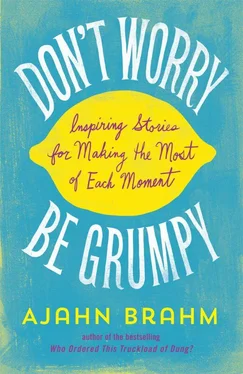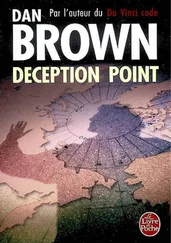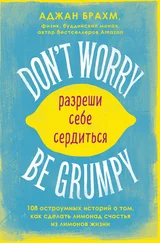It was awkward for me, as a heterosexual in the early seventies, being embraced in public by another man so affectionately. But the innocent joy that I saw all over my friend’s face while hugging me taught me to relax and enjoy it too. Life was uncomplicated at Fulbourn Hospital, among people who understood the emotional world so well. It was so different from studying in Cambridge University among those who were experts in everything except their own feelings.
I was so experienced after two years at Fulbourn Hospital that one Thursday the head of the OT department assigned me to one group all by myself for the first part of the afternoon and another group for the second part of the afternoon, again by myself. I never suspected a thing. Those friends with Down’s syndrome sure could keep a secret.
As I was about to leave, the real OT staff, the ones who were paid, called me into the big room. There stood all my friends with Down’s syndrome grinning like their faces would split, together with the staff. They were to make a presentation to me as the longest volunteering student that they had ever had.
While I had been working with one group, the other group and the staff were busy making presents for me. Now they were to make the presentation.
The gifts were not refined enough to sell in any shop, but they made me cry. By now, I had learned from my Down’s syndrome teachers how to let the tears flow in public. It was delightful. The head of the OT department said she had realized that my final examinations were to begin next week and that this would be my last day, hence the wonderful ceremony of gratitude. I replied through my tears that, actually, my exams did not start for another ten days. “May I come back next week, please?” They kindly allowed me an extra week.
Looking back, I learned most of what is now called “emotional intelligence” from those friends with Down’s syndrome. To this day, I regard them as the experts, my teachers.
Giving Overcomes Depression
Those who do voluntary community work often begin with the idea that they are giving something back to society. However, they usually finish up realizing that they have received much more than they ever gave. Their experience tells them that giving your time to a good cause is not an expense but an investment, always with a high rate of return.
I often counsel people with depression to go find some old people’s home, some hospital or other charity, and volunteer their time. Giving to others adds meaning to their lives. In voluntary service they find what they have lost: their meaning.
When giving service we receive nutritious emotional feedback, like I received serving my friends with Down’s syndrome. We are helped by those we thought we were helping. Our self-esteem rises, and we actually begin to like ourselves and our life. That is the end of our depression.
It may also make one rich, as the following story shows.
A friend had recently moved into a small apartment as a result of a divorce. He was unable to keep his pedigree dog in such cramped accommodation but was able to find a good home for her with a kind elderly woman who had another dog of the same breed.
One day, the elderly woman called him at work to ask if he would be able to drive her from her suburban home to the doctor in the city for an appointment. She was desperate and could not find any other means of transport.
My friend was running a one-man advertising business at the time that was just getting by. Being his own boss, he was able to take the time off to drive the woman to her appointment. That began a regular private taxi service for the dear old woman. My friend didn’t mind taking her to the dentist or wherever, because he got joy out of helping her and it was a welcome break from the grind of his work.
One morning she called to ask if he were free to take her to an important appointment with her lawyer. He obliged, as usual, and dropped her outside her lawyer’s offices in town. She asked politely if he could spare a few more moments to accompany her inside, which he happily did. There, in front of her lawyer, to his astonishment, she made him the sole beneficiary of her estate, which was substantial. The elderly woman was to die soon after.
My friend was amazed at his good fortune. He was only being kind and, anyway, he enjoyed looking after her. The last thing that he expected was to inherit such wealth. But that is what happens when we volunteer our time to help others. At the very least we feel good about ourselves, and sometimes there are other surprises too!
A man was walking through a forest when he spotted a hole. He stopped to look in and saw a large bag of gold at the bottom. He reached in to grab the treasure, but the hole was too deep. No matter how hard he stretched, he could not reach the gold. So he gave up.
As he continued his walk through the forest, he met another man and told him about the gold in the hole that was too deep to reach. The second man picked up a hooked stick, went to the hole, and pulled out the gold using the stick.
The problem was not that the hole was too deep, but that the first man’s arm was too short. The second man increased the length of his arm with a hooked stick, and he could easily reach the treasure.
Happiness is never too far to reach. We just need to increase our wisdom and compassion.
Then we can reach anything.
An elderly Buddhist woman called me one evening in great distress. She told me that that afternoon she had lied to her husband for the first time since they had been married forty years ago. She said she felt terrible.
Her husband, Don, had had a heart attack and survived. However, he urgently needed bypass surgery and so was put in a hospital ward to wait until he was strong enough.
There were three other male patients in the same room, also waiting for a bypass. Don became quite friendly with Jack in the adjacent bed. So much so that, when Don’s wife visited one evening, he asked how Jack was doing after his bypass operation that had been done that morning.
“Oh, Jack’s fine,” said his wife. “He is recovering in the ICU.”
The truth was that Don’s wife had just met Jack’s grieving family in the hospital’s foyer. Jack had died. She could not bear to tell her husband that his new friend had died from the same operation that he was to have the following day. So she lied.
Don only just survived his own bypass operation. He was on the edge of life and death for three days, but he pulled through. I often think that if his wife had told him the truth, the extra worry would probably have been enough to push him over that edge into death. The lie had saved his life.
So I tell my followers that it is okay to lie sometimes. But only once every forty years!
“Don’t you realize,” said the judge to the defendant in the murder trial, “that the penalty for perjury is very severe?”
“Yes,” replied the accused, “but it is far less than the penalty for murder!”
This explains why people lie so much: the penalty is usually far less when you lie than it is when you tell the truth.
For instance, a few years ago, a young girl came to me because she had become pregnant by her boyfriend.
“Why don’t you tell your mum and dad?” I asked.
“Are you kidding?” she replied. “They would kill me!”
So she lied to her parents instead.
It would be a far happier and healthier world if the value of honesty were raised so high that the penalty when you tell the truth is always far less than when you lie. The only way to achieve this is by giving amnesty, no matter for what, as long as the truth is told.
Читать дальше










